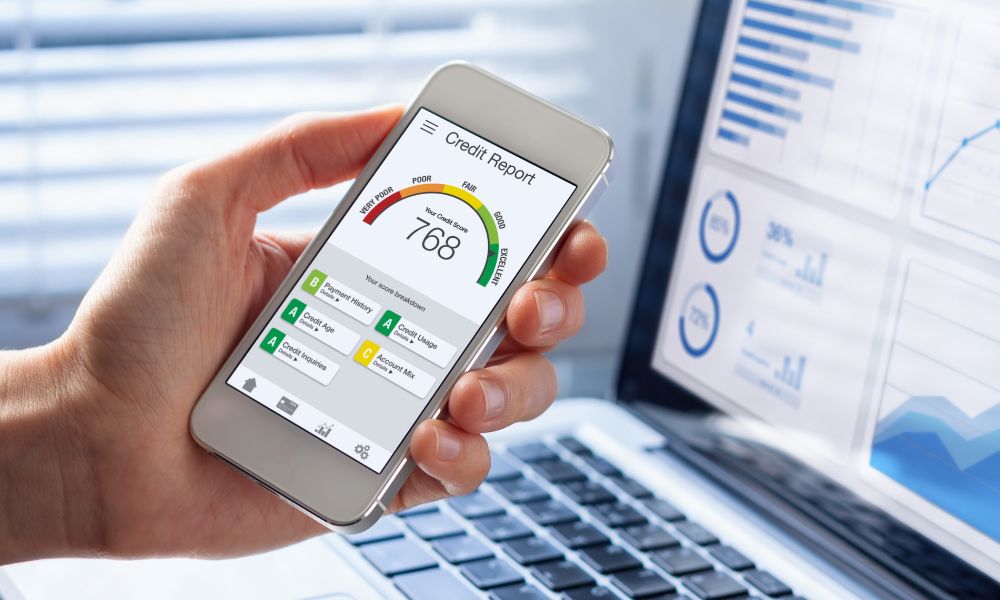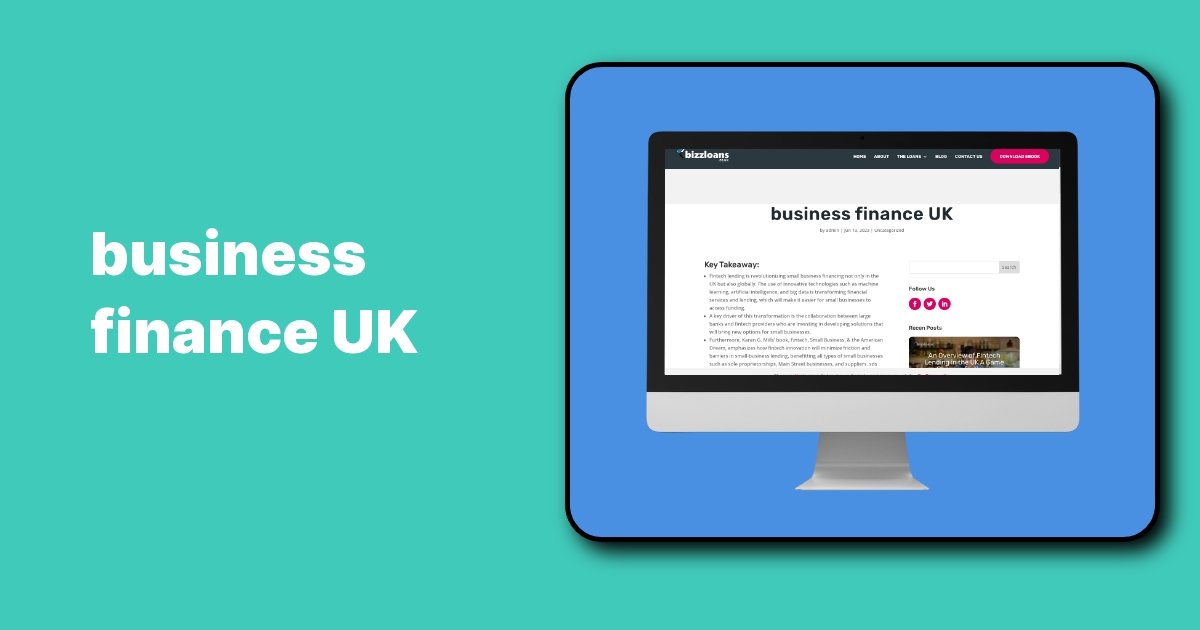Key Takeaways:
- While bad credit can make it difficult to secure a business loan, it is still possible. It is important to understand how bad credit impacts loans and have a strong business plan to improve the chances of approval.
- Checking and improving credit score is critical in securing a loan. For startups under a year old, the personal credit score of the owner is the determining factor. Traditional lenders typically require a minimum personal credit score of 650, while alternative financing sources may focus on financial indicators such as business revenues or receivables. To increase the likelihood of approval, it is important to check credit scores, review credit reports for errors, and dispute any mistakes found.
- Aside from traditional loan options, exploring alternative financing sources and establishing a business credit profile can help secure a loan. Finding a guarantor or partner and protecting parties with legal agreements can also be beneficial.
- Maintaining business resilience through energy efficiency, payment management, and accessing finance guidance can help improve financial standing and better manage loan payments.
- Conclusion: With careful planning, persistence, and taking the necessary steps to improve credit history, obtaining a business loan with bad credit can be possible.
Understanding Bad Credit and Business Loans
Bad credit can be a significant roadblock for entrepreneurs seeking business loans. In this section, we will discuss the definition of bad credit, how it affects business loans, and the importance of a solid business plan in securing funding. By understanding these concepts better, we will equip you with the tools required to overcome the challenges of obtaining a business loan with bad credit.
Definition of Bad Credit and Its Impact on Business Loans
Having bad credit can be tough for companies wanting funds. Bad credit is when a borrower doesn’t meet financial commitments, like paying bills or loan repayments. Lenders see bad credit as high-risk. They may be hesitant to give credit or charge higher interest rates. So, bad credit affects a company’s chance to get loans.

Bad credit borrowers can take steps to increase their chances of getting a loan. Firstly, they need a plan showing how they’ll use the money and make a profit. This conveys the potential borrower’s ability to manage money and reassures lenders they can pay back the loan. Secondly, they should check their credit reports for any errors. If wrong info is found, they should fix it, review their payment history, keep debt low, pay bills on time, avoid unneeded new accounts, and do other things to improve their score.
To get funding with bad credit, research alternative sources of financing is key. Traditional lenders like banks may not approve because of bad credit. But, online lenders or crowdfunding have options, but they often charge higher fees or interest rates. Knowing what bad credit is and its effect on business loans helps borrowers make good decisions and take actions to get financing even with poor credit.
Importance of Business Plan in Securing a Loan
Having a well-crafted business plan is key to getting a loan. It is your chance to show lenders your knowledge, skills and understanding of the market. Plus, it should include financial projections and details about your mission, target audience, competition, and revenue model.
You must also demonstrate a repayment strategy and address any bad credit scores. It’s essential to present your plan with clarity and precision. If you’re having trouble getting the loan, maybe the plan isn’t up to scratch. Ask industry experts to help you improve it.
Samira is a great example. She had no experience with banks or writing documents. But, with the help of consultants, she created an impressive plan. Her bank manager was so impressed, he quickly filled out the paperwork.
In short, having a strong business plan is crucial for getting a loan.

Checking and Improving Credit Scores
If you’re seeking a business loan with bad credit, it’s crucial to prioritize improving your credit score. In this section, we offer helpful sub-sections for obtaining credit history and scores, correcting errors on credit reports, and tips for improving credit history. It’s important to note that a credit score of 700 or higher is considered good, while anything below 580 is categorized as poor credit, according to Bankrate. Let’s dive in and learn how to address this crucial factor in securing a business loan.
Obtaining Credit History and Score
Knowing your credit history and score is a must to get a business loan. Lenders use these to decide how much money to lend, and the interest rate. So, grab your credit history and score!
To get it, request a report from the credit bureaus. They show your payment history for loans, cards, and other products. Credit scores range from 300 to 850. A higher score means better creditworthiness.
Improving your score? Correct errors on your credit report. Check it regularly to make sure it’s accurate. Also, pay bills on time. This helps your creditworthiness.
Use tools to manage payments and track expenses. Don’t let bad credit stop you from getting business loans. Get your report, fix errors, and actively manage your finances now.
Correcting Mistakes on Credit Reports
Correcting errors on credit reports is essential to improve credit history. These mistakes can negatively decrease credit scores and reduce the chances of getting a business loan. So, it’s important to spot and fix wrong info in credit reports.

You can find various inaccuracies such as incorrect personal data, paid delinquent payments, or accounts that don’t belong to you. To solve these issues, request your credit report and contact the reporting bureau if you spot any false info. The bureau should investigate and remove any errors.
Besides, monitoring credit reports regularly is essential to identify future mistakes. Regularly checking your credit report will guarantee early discovery of errors and timely correction before serious harm happens.
Follow these simple yet effective tips to upgrade your credit history and increase your chances of loan approval.
Tips to Improve Credit History
Good credit is key to securing business loans. If you have bad credit, improving it can take time. But, these tips to improve credit history can help!
- Pay bills on time.
- Reduce debt.
- Dispute any wrong info in credit reports.
- Don’t apply for multiple lines of credit at once.
- Limit new accounts.
- Keep a low credit utilization ratio.
Seek help from credit counselors and advisors. Improving your credit score requires effort and patience.
Failing to improve credit can hurt loan prospects. Building good credit takes effort and discipline. Plan carefully for loan success. Research and planning can help secure a bright future.
Researching and Planning for Loan Applications
Researching and planning for loan applications are crucial steps that can make or break the loan approval process, especially if you have a low credit score. In this section, we’ll explore two essential sub-sections: exploring alternative financing sources and establishing a personal credit profile. These steps can help you secure a personal loan even with bad credit and set you on the path towards financial stability and growth.

Exploring Alternative Financing Sources
Alternative financing sources are options for businesses that struggle to get traditional bank loans. These include microloans, crowdfunding, factoring, invoice discounting and supply chain financing. When banks reject an application due to bad credit, alternative financing becomes essential.
Microloans come from non-profits or microlending institutions and are usually less than $50,000. For crowdfunding, a group of people contribute small amounts towards a goal. Factoring means selling invoices for a fee. Invoice discounting is getting short-term finance against unpaid invoices. Supply chain financing is borrowing against orders received.
Researching and understanding the requirements of each source can help identify suitable options. Compared to conventional lending, these sources have flexible repayments and lower interest rates. But there are risks and limitations. Industry experts can help make informed decisions. Building a strong credit profile is also crucial for future financing.
Establishing Business Credit Profile
Creating a strong business credit profile is crucial for getting loans with good terms. Therefore, it’s vital to open accounts with suppliers and vendors who report payments to the major credit bureaus. This allows you to form a positive payment history, which is essential for lenders when evaluating your creditworthiness.
You must register your business with major credit bureaus, like Dun & Bradstreet or Experian Business. You’ll need to get a DUNS number, which is a unique identifier for your business. Giving accurate and up-to-date info about your business operations and financials to these bureaus is important for improving the accuracy of your credit profile.
You must also keep low debt utilization ratios on existing credit accounts to create a strong business credit profile. Lenders prefer to offer good loan terms to businesses that show responsible management of their debts. It’s also important to often review and monitor your business credit reports to spot any errors or inaccuracies that could reduce your credit score.
In conclusion, setting up a solid business credit profile takes time and effort. However, it can result in having better access to financing options at affordable rates.

Securing a Business Loan with Bad Credit
When it comes to securing a business loan with bad credit, there are several factors to keep in mind. In this section, we will uncover the different elements that are considered when applying for a loan with bad credit. We’ll take a look at the impact of both personal and business credit scores. According to FICO, a personal credit score ranges from 300 to 850, with 850 being the highest score possible. Business credit scores, on the other hand, range from 0 to 100, where a score above 75 is considered excellent. Both scores are crucial factors in determining loan eligibility and interest rates.
In addition to credit scores, finding a guarantor or partner can also increase the likelihood of loan approval. A guarantor provides a guarantee on the repayment of the loan if the borrower defaults. A partner, on the other hand, can improve the financial situation of the business through shared capital and resources.
Legal agreements are crucial for protecting all parties involved in the loan agreement. It is important to have a clear understanding of the terms and conditions of the loan, as well as the consequences of defaulting on the loan. By having a legally binding agreement in place, all parties can have peace of mind.
In summary, securing a business loan with bad credit requires careful consideration of credit scores, finding a guarantor or partner, and having a legal agreement in place. By addressing these factors, businesses can increase their chances of securing a loan and achieving their financial goals.
Personal Credit Score Considerations
Personal credit score is very important when it comes to getting a business loan. It shows how reliable a borrower is when it comes to paying back the loan. A higher credit score reflects financial responsibility.
Lower credit scores might mean higher interest rates or extra collateral for the loan. Therefore, borrowers need to keep track of their credit reports in order to ensure accuracy. Late payments, defaults, and high credit card balances can affect a borrower’s score negatively. To improve it, on-time payments must be made, balances kept low, and new accounts must be avoided.
However, other elements are also taken into consideration when evaluating loan applications, such as debt-to-income ratio, cash flow, and income. So, not relying solely on personal credit score is important.
It is essential to prioritize credit score to prove financial reliability. This may help get the loan with better terms.

Business Credit Score Considerations
Business credit score is an essential factor lenders consider when judging loan requests. It shows the company’s ability to pay debts. This includes info such as payment history, defaults, and bankruptcies. If a company has a good credit score, it increases the chance of getting a loan with better terms and rates.
To have a good credit score, borrowers need discipline and organization. Timely payments, avoiding late payments, and lowering outstanding balances are crucial. Lenders view businesses with bad credit as risky borrowers, making them hesitant to give loans or increasing interest rates.
Accounting software is a useful financial tool. It helps track income, expenses, and invoice details. Good communication with creditors proves responsibility and proactivity. This may lead lenders to grant loans despite bad credit.
In tough times, finding a guarantor or partner to vouch for creditworthiness is a good idea to get a business loan. So, borrowers must keep a close eye on their credit score and take proactive steps to maintain it.
Finding a Guarantor or Partner
In these tough times, a guarantor or partner could be key to getting a business loan if you have bad credit. A guarantor is someone that pays back the loan if you can’t. Whereas, a partner brings in their skills, resources and extra cash which could help reduce the lender’s risk.
When looking for a guarantor or partner, it’s essential to clearly explain your business plan and budget. Bad credit won’t completely go away as lenders may still check your personal credit score.
Moreover, check if the potential guarantors or partners have enough money to cover any financial commitments. Draw up legal agreements that protect all parties.
Furthermore, having a dependable guarantor or partner could make lenders see your business in a better light and increase the chances of you getting the loan. It could take time and effort to find the right match, but it could be worth it in the end as they may give you the boost you need to take your business up a level.
Cross your T’s and dot your I’s when considering a guarantor or partner for a business loan with bad credit. Make sure you communicate your business plan and budget well, draw up agreements, and choose a reliable and trustworthy guarantor or partner with the funds and resources to support your business.
Protecting Parties with Legal Agreements
Securing a business loan with bad credit? It’s important to take steps to protect both parties. Establishing legal agreements outlining each party’s responsibilities and expectations is the best way. An example of this is a promissory note. This document details the borrowed amount, interest rates, and due dates. Plus, a personal guarantee can be agreed on, which means the individual will repay the loan if the business cannot.
Before signing any legal agreements, review and consider them carefully. Seek help from a financial advisor or attorney to make sure the documents are legally binding and accurate. Additionally, include clauses that address potential issues like late payments, default, or breach of contract. These clauses provide extra protection during the loan process and clear guidelines for resolving disputes.

Maintaining Business Resilience
Maintaining business resilience is crucial, especially when trying to secure a business loan with poor credit. In this section, we will explore two sub-sections that provide valuable insights and guidance to business owners in need of loan approvals. These sub-sections are packed with practical tips on managing your business’s energy efficiency and payment management. We will also examine how to access finance guidance, which can provide businesses with the resources needed to secure much-needed funding.
Tips on Energy Efficiency and Payment Management
Businesses can boost their resilience by focusing on energy efficiency and payment management. Tips that reduce energy consumption will help them save money and protect the environment. Payment management is also vital for their financial stability.
Renewable energy sources, new, efficient appliances and reduced idle time all reduce energy usage. Efficient bills and payment tracking help with cash flow.
Financing for energy-efficient upgrades and finance guidance can help businesses access funds. Research shows that firms with environmental efforts have better financial performance.
By incorporating energy efficiency and payment management tips, businesses save money, improve their financial performance and make a positive impact on the environment.
Accessing Finance Guidance
Accessing finance guidance is key for businesses trying to get loans, especially those with bad credit. Seeking advice from experts can give valuable information and help create plans to make creditworthiness better. According to Reference Data, there are some ways business owners can get finance guidance.
Financial advisors, who are familiar with lenders and can help work out which lender will lend to people with bad credit, are a great way to get assistance. They can also help companies get ready for necessary documents such as financial statements, business plans, and other things.
Besides finding an expert, entrepreneurs can go to workshops or online seminars about financing options for small businesses. This can give important knowledge on different loan types, qualifications, document prep techniques, and negotiation strategies.
Lastly, access to info is important for getting a business loan with bad credit. Business owners should look into online resources like government websites that offer information on low-interest loans, grants and tax incentives for small businesses. So, accessing finance guidance gives many advantages that allow business owners to get money to make their business larger without compromising quality or success.
Conclusion: Moving Forward with Confidence
Bad credit? No worries! There are steps you can take to secure a business loan with confidence. Start by improving your credit score – pay off debts and keep an eye on your credit report. Consider alternative lenders, like online ones, or offer collateral to reduce risk.
Also, put together a detailed biz plan and have all documents ready. It’s essential to build a positive relationship with the lender and stay in communication. Quickly answer any questions and address any concerns to increase your chances of approval.
Follow these strategies and you can confidently move forward with your business goals – even with bad credit.
Five Facts About Tips to Secure a Business Loan with Bad Credit:
- ✅ To increase the chances of getting approved for a small business loan with bad credit, it is important to check credit scores, review credit reports for errors, and dispute any mistakes found. (Source: Bankrate)
- ✅ If the business has been operating for less than a year, lenders will look at the personal credit score of the owner to determine loan eligibility. (Source: Experian)
- ✅ Both the personal credit score and business credit score will be considered in a loan application if the business has been operating for more than a year. (Source: Bplans)
- ✅ Traditional lenders typically require a minimum personal credit score of 650 for loan approval, but some alternative financing sources may focus on business revenues or receivables instead. (Source: Bplans)
- ✅ It is possible to get financing for your business with bad credit, but it may be an uphill battle that requires research, planning, and improving personal credit scores. (Source: Startup Loans)
FAQs about Tips To Secure A Business Loan With Bad Credit
Can I get a business loan with bad credit?
Yes, it is possible to secure a business loan with bad credit, but it can be a challenging process. Before applying for a loan, it is important to improve your credit score and review your credit report for errors. Research lending options and consider alternative financing sources.
What solutions allow me to move ahead with a business project despite bad credit?
To move ahead with a business project despite bad credit, it is important to rectify your financial situation first. Obtain your credit history, pay bills on time, use credit wisely, and minimize loan requests to improve your credit history. Consider teaming up with associates who have a good credit history, find a guarantor who meets the lender’s eligibility criteria, and consider personal investment.
What solutions allow me to improve my chances of being approved for a business loan with bad credit?
To improve your chances of being approved for a business loan with bad credit, check your personal and business credit history, review your credit report for errors, and dispute any mistakes found. Consider alternative financing sources and demonstrate your ability to repay the loan.
Is it better to have a good business credit history or good personal credit history for a business loan with bad credit?
Both your personal and business credit histories are considered when applying for a business loan with bad credit. For businesses less than a year old, lenders consider your personal credit score. If your business has been operating for more than a year, both your personal and business credit scores will be considered.
What are the reasons for bad credit that can make it difficult to get a business loan?
There are several reasons for bad credit that can make it difficult to get a business loan, including missed or late repayments, defaulted credit agreements, exceeded credit limits, CCJs, bankruptcy, insolvency, and a liquidated previous company. Senior managers with bad credit can also make it difficult to secure a loan.
How can people with bad credit get a business loan?
People with bad credit can get a business loan by improving their credit score, considering alternative financing sources, teaming up with associates who have a good credit history, finding a guarantor who meets the lender’s eligibility criteria, considering personal investment, and demonstrating their ability to repay the loan.


